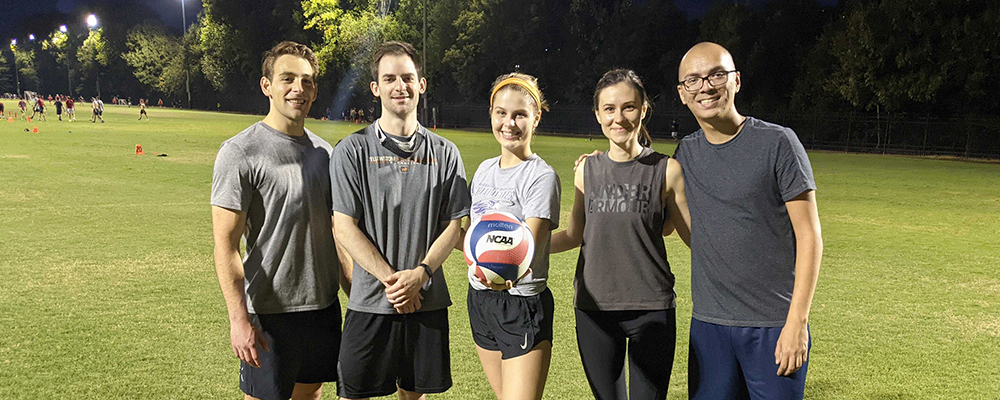After my first week at the Institute of Advanced Analytics, I realized I had to change. Gone were the days of undergrad, in which I had ample free time to sleep in, hit the gym whenever convenient, and complete tasks “whenever I get to them.” However, as someone unwilling to give up my active and social lifestyle, I had to reconstruct how I managed my time and expectations. In this post, I share tips and activities that have helped me balance my physical and mental health with the lofty academic expectations of graduate school.
1. Stay Active
The National Library of Medicine states, “Physical activity is an important key factor of academic performance since it improves brain neurotrophic factors, brain development, and overall health status.” I have found this true in my academic journey at the Institute. Early on, I set a minimum goal of completing six one-hour-long workouts per week. As the schoolwork intensified, I found the only way that I would be able to stick to my goal was to do the unthinkable – wake up at 6 AM to work out. While the first few days were rough, the results and extra time I saved made this decision a worthy sacrifice.
Another tip is to find an outdoor activity you can do once a week. My favorites include running, golf, and basketball – but choose one that works for you. Being out in the sun has been shown to increase endorphins and boost our Vitamin D, a supplement that many busy graduate students often lack.
2. Eat Healthy
One of the most significant changes I experienced coming to the Institute was no longer having the time to cook every meal fresh. Early in the summer, I ate out far too frequently due to being too tired to cook at the end of the day. This habit led to me overeating junk food and feeling lethargic. I realized that I had to learn to meal-prep to avoid this. I created a spreadsheet to plan out each meal I would eat daily. This change made it easy to plan my meals around each day’s schedule. It also gave me a better idea of what I needed to buy at the grocery store each week.
A diet that has worked great for me to improve both my physical health and mental clarity is sticking to chicken, turkey, and fish. Complement each of these with one carbohydrate and vegetable, and you are good to go. Additionally, to cut costs, avoid stores around campus that cater to student shopping (Harris Teeter and Target). Alternatives such as ALDI, Trader Joe’s, and Costco have the same options at far lower prices.
3. Self-Care
Amidst the grind of the curriculum, it can be easy to get caught up in the details and forget to do the things that keep our heads on straight. I block out time throughout the week for those activities and hobbies that bring me the most joy. We often undervalue the time after finishing an exam, delivering a presentation, or submitting a project when we can reflect and give our brains some space to breathe.
Lastly, planning events to get to know your classmates outside of the Institute is critical. It can sometimes feel like we are all robots with no personal lives outside of class, but this is far from the truth. These social activities help break the ice and make day-to-day life at the Institute more lively and enjoyable. Our cohort utilizes a Slack channel called “social,” where we plan everything from football tailgates to Tuesday night trivia. This channel is a great way to keep in touch with events during evenings or weekends.

Integrating these activities into my routine has helped me improve my academic focus and keep my study habits sharp. One big thing I have learned about myself in the Program is that I am a creature of habit. Scheduling and planning my daily activities gives me one less thing to think about and leads to me producing higher quality work. While the Institute curriculum is no walk in the park, these physical and mental health tips are paramount in helping me succeed in and outside the classroom.
Columnist: Jonah Bonesteel
